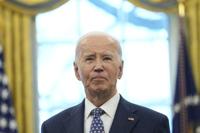As the child-free lifestyle surges in popularity among younger generations, many might imagine it means having a lot more money to spend, but that's not always the case.
In fact, it’s not a prioritized clientele in the financial planning world, some experts say – and it’s one with its own unique needs.
According to Statistics Canada, gen Z and millennial generations are continuing the downward trend of the number of children per woman in Canada. Roughly a third of people aged 15 to 49 do not intend to have kids at all.
When it comes to financial planning, this is actually “an underserved group,” says Barbara Knoblach.
A financial planner based in Edmonton and working with Money Coaches Canada, Knoblach says many advisory firms like to sign on multiple members of the same family, across generations — which is the main reason this clientele is not prioritized.
“Traditional financial planning is centered on the concept of building generational wealth,” she says. “However, this is of little significance for child-free clients.”
Among her clientele without kids, Knoblach sees an emphasis on saving and investing, and a larger average net worth.
For a single person, disability insurance is important to protect against a prolonged illness or serious injury and subsequent long absence from work since they can’t rely on a spouse or adultchildren for care or support, she points out.
With this increased importance on disability insurance, however, there is less emphasis on life insurance.
“Conversely, child-free individuals do not tend to need a lot of life insurance,” Knoblach adds, “as they do not have dependents.”
Similarly, upon retirement, child-free people need a bigger financial cushion to land on — they have to finance their own care as they age, she explains, since moving in with a child is not an option.
They also need to identify someone as their power of attorney or executor, a particularly important detail if there’s no spouse, and if other relatives live far away.
However,people without kids have more flexibility in their financial goals and retirement plansbecause they skip the expense of raising children, says Ian Black, a fee-only financial advisor with Macdonald Shymko & Company in Vancouver.
“Whether it’s increased savings, or increased consumption, [being child-free] allows for more flexibility as long as you’re taking into account your retirement goal,” Black says. “And everyone’s different with that, you know, some people want to retire at 52. And some people can’t think of what they would do after they retire.”
In terms of leaving a legacy, Black sees child-free clients often donating their wealth to charity after their deaths, and sometimes leaving some money for other family members such as nieces and nephews.
Modern families, and wealth transfers within them, aren’t quite “linear” anymore, says Julie Petrera, senior strategist of client needs in Canada at Edward Jones.
Instead of a family tree, financial planning firms are seeing something closer to a “family circle.”
“The definition of family continues to evolve,” Petrera says.
Child-free couples might still have costs associated with children, Petrera points out — some people are not child-free by choice.
“They may actually spend a significant amount of money trying to have children,” she says. “So from a financial planning perspective, we can’t assume that all child-free couples have no expenses related to children, or trying to have children. So that’s something we would help them budget for and plan for.”
Individuals and couples without kids may also face different expectations within their extended families. This segment could be expected to care for aging parents, more so than their siblings who have their own children.
Knoblach says she’s seen child-free clients expected to pick up the bill for elderly parents — and she tells them to communicate clearly with siblings.
“Although it is true that child-free clients do not have expenses for raising children, they will be facing other expenses, such as for their own care later in life,” Knoblach says.
“It is not a given that a child-free person will be better off than someone who has raised children. Child-free individuals need to save over-proportionally to avoid the risk of outliving their money.”
While remaining child-free throughout life may saveon the steep costs of having children — Statistics Canada quotes $366,000 to raise one child to 17 years old — it still requires care and expertise in planning for the long-term.
“As more and more people decide not to have children,” Knoblach says, “I hope that financial planners will become better equipped to address the unique needs and challenges of this group of clients.”
This report by Ďă¸ŰÁůşĎ˛ĘąŇĹĆ×ĘÁĎ was first published Dec. 26, 2023.








































